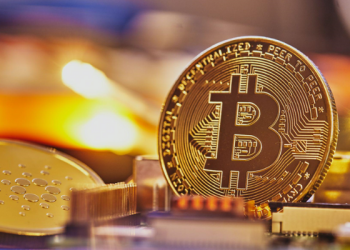Nigeria is set to remove the naira from all Peer-to-Peer (P2P) crypto platforms in a bid to curb manipulation of the local currency in the foreign exchange market, announced Emomotimi Agama, Director General of the Securities and Exchange Commission (SEC), during an interactive session with the Nigerian Blockchain Industry.
Agama stated that the move is part of forthcoming regulations aimed at tightening oversight of the crypto industry in Nigeria. “That is one of the things that must be done to save this space,” Agama emphasized, urging cooperation from stakeholders.
He reassured stakeholders of the SEC’s commitment to collaboration and declared readiness to work with all players in the industry. Agama emphasized the need for updated guidelines to ensure best practices.
The decision comes following a recent directive from the Central Bank of Nigeria (CBN) to fintech companies, instructing them to warn customers against crypto transactions. Several fintechs, including OPay, Palmpay, Kuda, Moniepoint, and Paga, have notified customers of their intention to close accounts engaged in crypto or other virtual assets transactions.
The move is linked to the freezing of 105 accounts across nine fintechs suspected of illegal activities such as unauthorized forex dealings, money laundering, and terrorism financing. The Economic and Financial Crimes Commission (EFCC) secured an interim court order on April 24, 2024, to freeze these accounts for 90 days pending investigations.
Crypto stakeholders anticipate that the delisting of the naira from P2P platforms will be temporary until a regulatory framework for virtual asset providers is established. However, concerns have been raised about the potential impact on the naira’s value and increased demand for dollars for trade purposes.
Chimezie Chuta, founder and coordinator of Blockchain Nigeria User Group, emphasized the need for formal communication from regulators or policymakers regarding the delisting.
Nigeria’s move towards P2P regulation is part of broader government efforts to crack down on crypto platforms, particularly Binance, which faced regulatory scrutiny starting in February 2024. The crackdown led to Binance halting naira operations and the arrest of two executives who visited Nigeria to discuss the matter with authorities.
Authorities attribute currency speculation and the rapid devaluation of the naira to crypto platforms. Olayemi Cardoso, governor of the CBN, recently revealed that $26 billion flowed through Binance Nigeria in a year from unidentified sources.
The decision to delist the naira from P2P platforms underscores Nigeria’s evolving stance on crypto regulation and reflects ongoing efforts to safeguard the country’s financial system from potential risks associated with cryptocurrencies.











